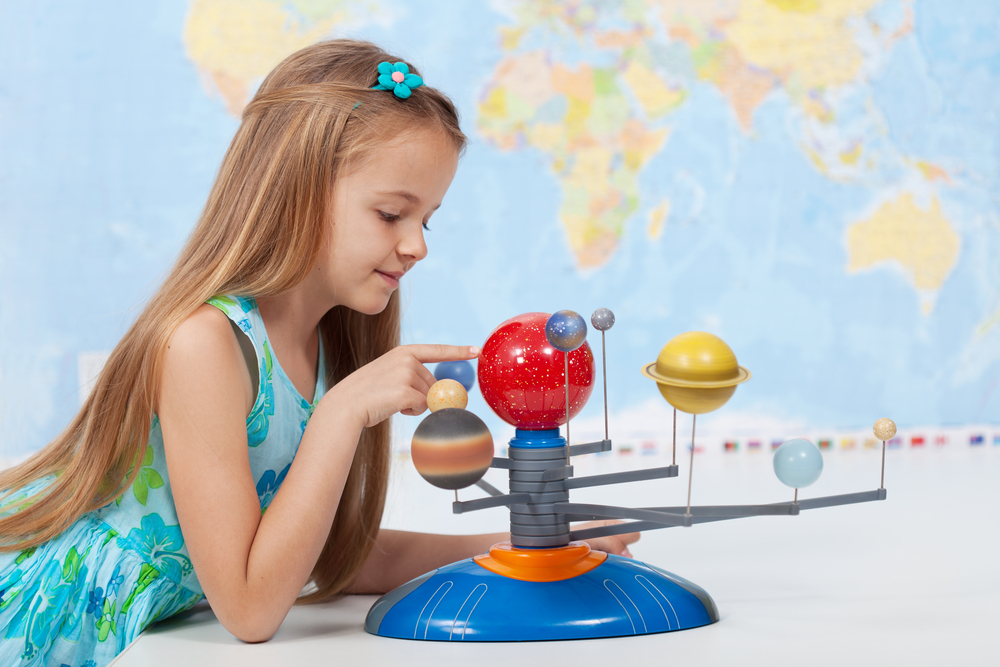Vocabulary Building Normal Science Worksheets for 5-Year-Olds
5 filtered results
-
From - To
Discover our engaging Vocabulary Building Normal Science Worksheets designed specifically for 5-year-olds! These worksheets offer a fun way to enhance vocabulary while nurturing curiosity about the world of science. Each activity promotes interactive learning, helping young learners identify and use essential science terms through colorful illustrations and simple exercises. From exploring nature to understanding basic scientific concepts, our worksheets are perfect for both home and classroom use. Watch as your child develops their language skills and gains confidence in expressing their newfound knowledge. Dive into the exciting world of science and vocabulary with our carefully crafted resources today!
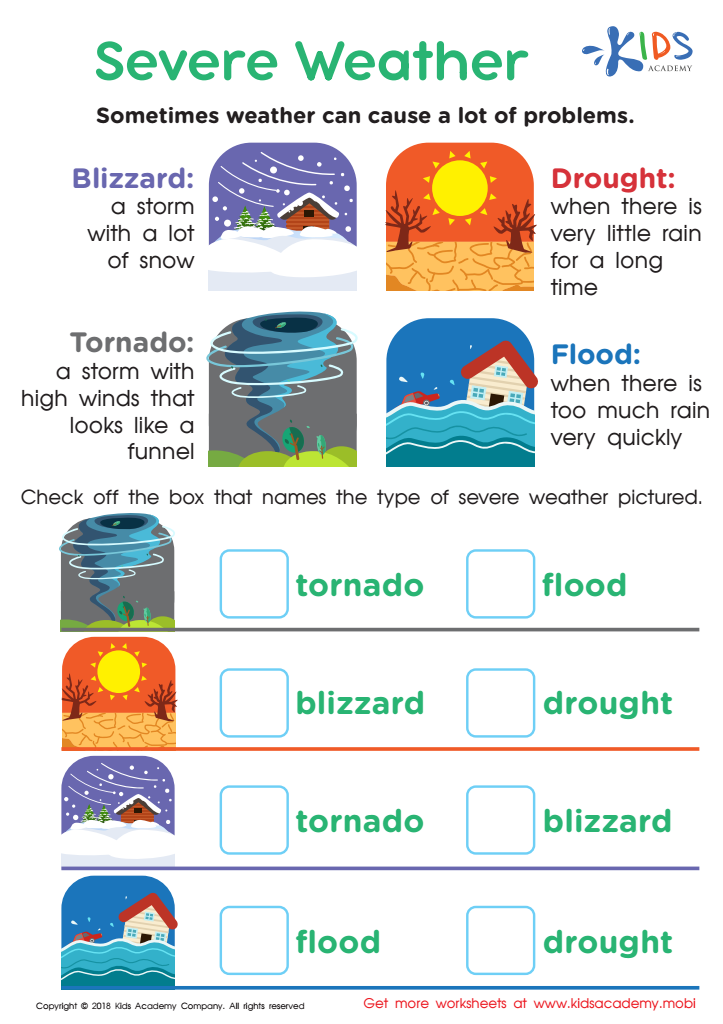

Severe Weather Worksheet
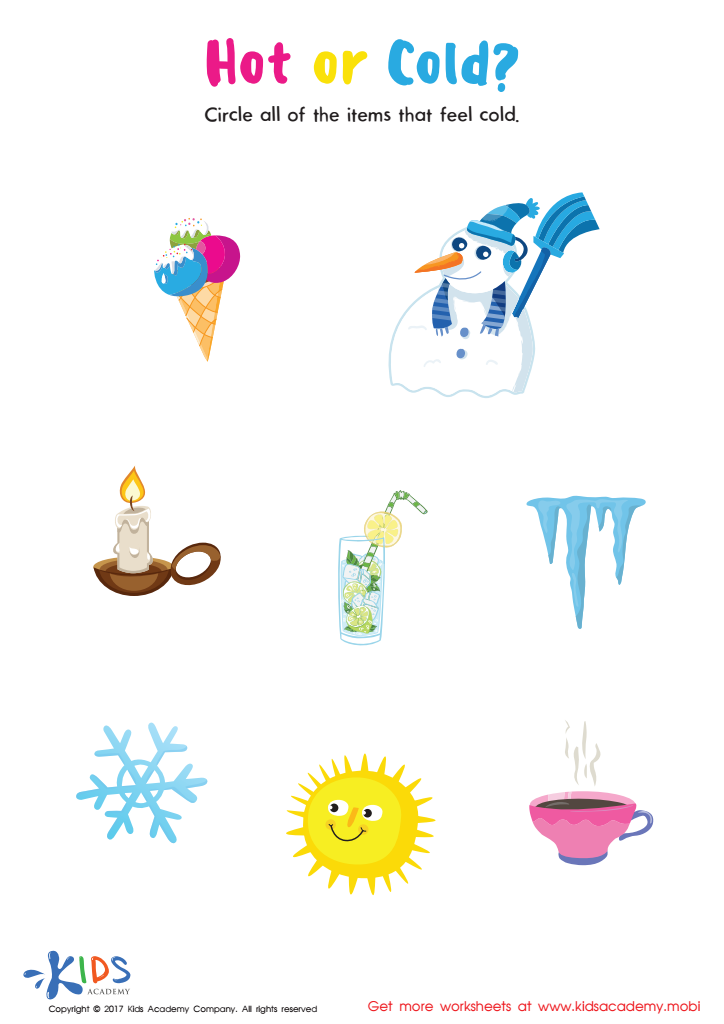

Hot or Cold Printable
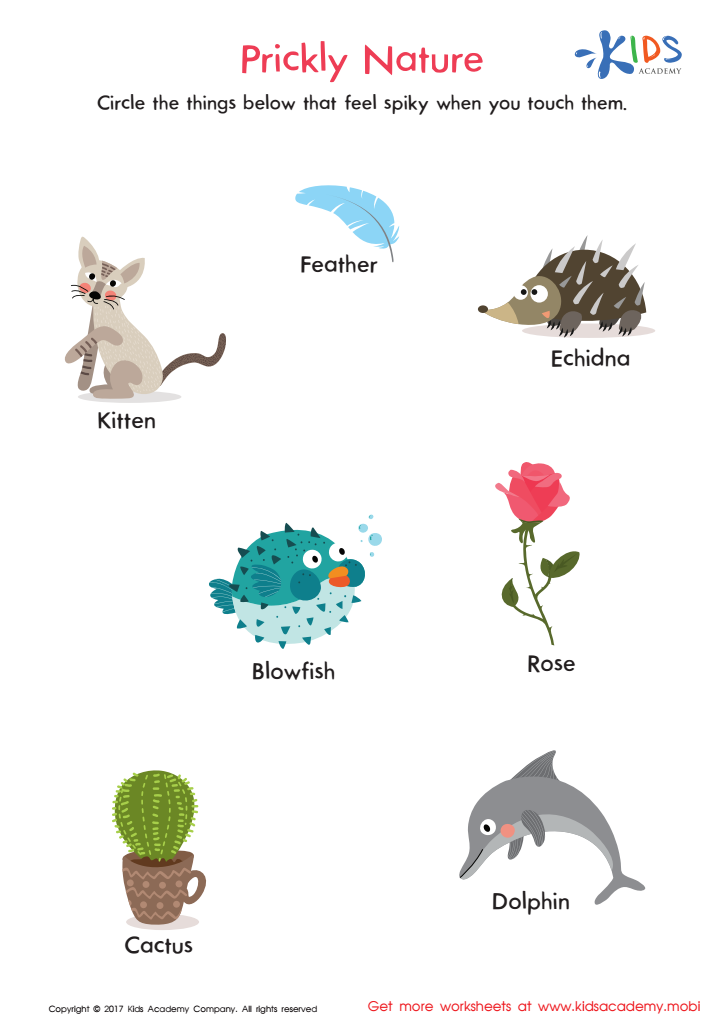

Prickly Nature Worksheet
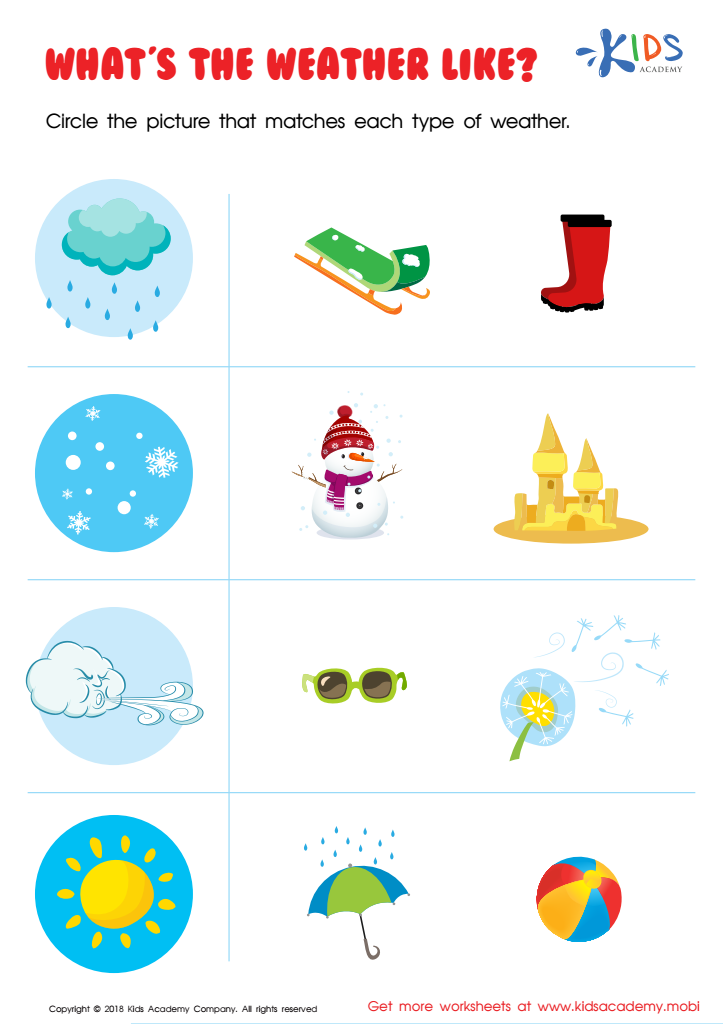

What's the Weather Like? Worksheet
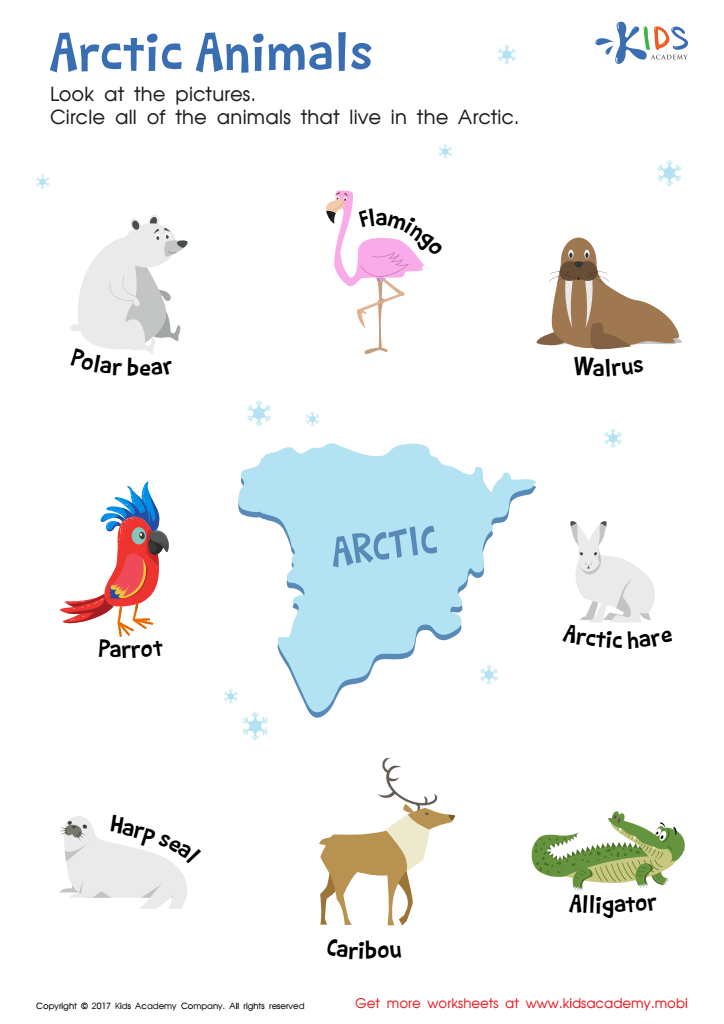

Arctic Animals Worksheet
Vocabulary building in early childhood, particularly in subjects like normal science, is crucial for several reasons. For parents and teachers, fostering a rich vocabulary in five-year-olds can significantly influence their overall language development and cognitive skills. Enhanced vocabulary allows children to articulate thoughts, comprehend instructions, and express curiosity about the world around them, which is fundamental in science education.
Learning vocabulary related to normal science introduces young children to essential concepts such as observation, hypothesis, experiment, and conclusion. These terms form the building blocks of scientific thinking and help children understand processes in nature and everyday life. Engaging with new words promotes curiosity and encourages children to ask questions, fostering a sense of inquiry that is foundational to scientific learning.
Moreover, robust vocabulary development at this age supports literacy skills, aiding in reading comprehension and communication abilities as children grow. When children feel confident in using their words, they are more likely to participate in discussions and share their ideas. Therefore, parents and teachers should prioritize vocabulary building in science to nurture a generation of curious, thoughtful learners, laying a strong foundation for future academic success.

 Assign to My Students
Assign to My Students









